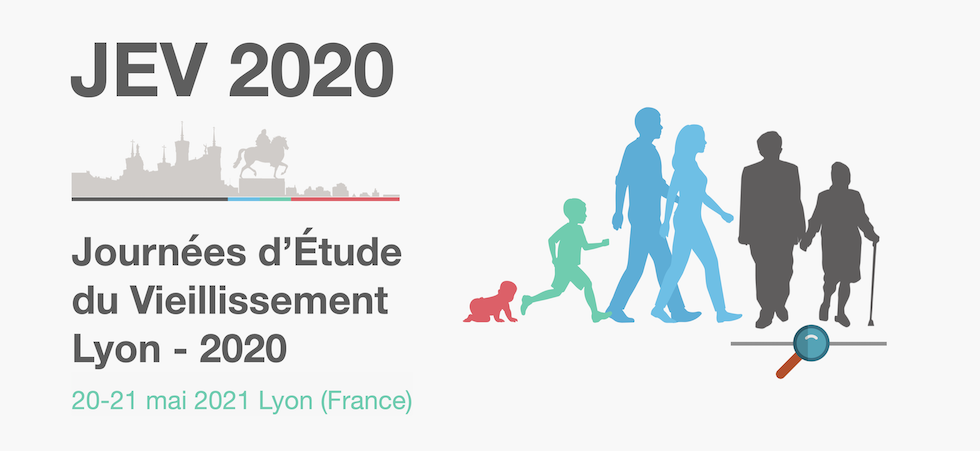
Conférenciers invités
CONFÉRENCIERS INVITÉS - Guillaume T. VALLET - Geraldine RAUCHS - Markus WERKLE-BERGNER - Moshe NAVEH-BENJAMIN
RÉSUMÉS CI-DESSOUS ⬇︎ _________________________________________________________________
Guillaume T. VALLET LAPSCO (CNRS UMR 6024) Université Clermont Auvergne page web : https://www.gtvallet.com/fr/
Vieillissement cognitif incarné : Une mémoire pleine de sens Les approches incarnéeset situées de la cognition connaissent un essor indéniable. Ces approches deviennent communes dans les domaines de la philosophie, de l’intelligence artificielle ou encore de la cognition. À l’inverse, ces approches demeurent méconnues ou vivement critiquées dans le domaine de la neuropsychologie. Pourtant, les principaux postulats avancés par ces approches, telles que la modalité des connaissances (ancrage des connaissances dans leurs propriétés sensorimotrices) ou encore l’émergence dynamique et simulée des souvenirs, font écho au vieillissement normal et aux troubles neurocognitifs (maladie d’Alzheimer, démence sémantique…). L’objectif de cette présentation sera d’illustrer l’adéquation des approches incarnées et situées de la cognition aux problématiques du vieillissement normal. L’emphase sera portée sur le fonctionnement mnésique. Après avoir montré que les connaissances restent ancrées (connaissances sensorimotrices) lors du vieillissement cognitif, les répercussions de cet ancrage sur l’émergence des souvenirs et les erreurs de mémoire seront abordées. Enfin, les travaux en cours sur la stimulation cognitive ou l’aide à la reviviscence serviront d’ouverture sur de nouvelles pistes de prise en charge de la mémoire basées sur ces approches. Mots-clés : cognition incarnée et située ; vieillissement ; mémoire ; erreurs de mémoire ; connaissances sensorimotrices.
_________________________________________________________________
Geraldine RAUCHS Normandie Univ, UNICAEN, PSL Université, EPHE, INSERM, U1077, CHU de Caen, GIP Cyceron, NIMH, Caen, France page web : https://nimh.unicaen.fr/fr/personnes/name/geraldine-rauchs/
Associations between sleep quality, cognitive and brain alterations in aging. Sleep is essential for an efficient cognitive functioning. Recent studies have shown that poor sleep quality is associated with grey matter atrophy and white matter alterations (Sexton et al., 2014; 2017). In addition, sleep also appears to be intimately related to amyloid pathology (see for example Spira et al., 2013; Sprecher et al., 2015). Thus, poor sleep quality may increase the risk of cognitive decline and Alzheimer’s disease (AD). I will present the results of different studies conducted in our laboratory, assessing the impact of sleep quality on cognitive and brain alterations in cognitively healthy older adults and in patients in the early stages of AD. In a first study focusing on self-reported sleep quality, we showed that older adults complaining of recurring difficulties falling asleep have greater amyloid burden in prefrontal areas, known to be early affected in AD. Surprisingly, subjective sleep quality was not associated with executive nor episodic memory performance (Branger et al., 2016). In a second study, actigraphy data were collected during one week and we computed indices of sleep fragmentation. We showed that sleep fragmentation mediated the association between fronto-hippocampal hypometabolism and lower executive functioning in cognitively normal elderly participants. However, in patients with subjective cognitive decline and/or mild cognitive impairment, sleep fragmentation no longer contributed to the expression of cognitive deficits. These findings suggest that sleep fragmentation may directly contribute to lower cognitive performance in cognitively unimpaired elderly subjects. In addition, treating sleep disturbances before the onset of cognitive deficits may help to cope with brain alterations and maintain cognitive functioning (André et al., 2019). Finally, we also investigated the impact of sleep apneas, a sleep disorder very frequent in older individuals, on brain and cognition. We showed that individuals with a high apnea-hypopnea index (>15 events/h) have greater gray matter volume, increased glucose metabolism and brain perfusion, as well as greater amyloid deposition in a brain area encompassing the precuneus and the posterior cingulate cortex. These early brain changes occur in the absence of any cognitive symptoms (André et al., in revision). Taken together, these data highlight the utmost importance of preserving sleep quality for a successful aging.
_________________________________________________________________  Markus WERKLE-BERGNER Max Planck Institute for Human Development, Berlin, Germany page web : https://www.mpib-berlin.mpg.de/de/mitarbeiter/markus-werkle-bergner
Memory in the Aging Brain: Structural integrity, sleep, and neuromodulation Memory abilities in later life are shaped by the dynamic interplay of biological aging processes and personal experiences that drive and affect plastic changes on neural and behavioral levels. For decades, research into memory decline in human cognitive ageing has focused on how encoding and retrieval mechanisms might be affected by age-related decline in brain structure in neocortical regions and the hippocampus. Recently, however there is an increasing interest in how age-associated changes in memory storage itself (i.e., consolidation) and in neuromodulation might shape the aging system. Sleep is crucially supports the long-term stabilization of newly acquired mnemonic contents. In the quest for new avenues to explain, predict, and treat pathophysiological conditions during senescence, research on sleep and aging has flourished. This search is fueled by the surprisingly close co-development of changes in sleep physiology and impaired cognition during aging. In the first part of the presentation, I will discuss recent findings implicating that memory functioning depends not only on maintaining structural brain integrity in later adulthood, but also on the preservation of precisely timed neural interactions during sleep that enable the consolidation of declarative memories. Moreover, recent findings indicate that the locus coeruleus (LC), the main source of norepenephrine (NE) in the brain may shape memory development in later life. However, technical challenges in non-invasive LC measurements have hindered the study of LC–cognition associations in humans. Novel MRI and pupillometry methods now allow for non-invasive assessments of LC structural integrity and functionality. Hence, in the second part of the presentation, I will discuss recent studies that highlight the importance of a structurally and functionally preserved LC-NE system for maintained cognition in later adulthood. Taken together, sleep-dependent memory consolidation and LC-NE dependent neuromodulation may present promising research and intervention targets for understanding and alleviating age-related declines in memory beyond encoding and retrieval differences.
_________________________________________________________________
 Moshe NAVEH-BENJAMIN Memory and Cognitive Aging Laboratory, Department of Psychological Sciences University of Missouri, Columbia, Missouri, USA page web : https://macal.missouri.edu/index.html Binding of Memories: An Update on the Associative Deficit Hypothesis of Age-Related Episodic Memory Changes Systematic research and anecdotal evidence both indicate declines in episodic memory in older adults in good health without dementia-related disorders. Several hypotheses have been proposed to explain these age-related changes in episodic memory. One suggestion — the associative deficit hypothesis (ADH)— posits that these changes are partially due to declines in the ability to bind together the different components of an episode during memory encoding (i.e., when first attempting to commit information to memory) and in the ability to access these bound components during memory retrieval, while attempting to recall or recognize memories of events. In the current talk, empirical evidence related to age-related changes in associative memory will be reviewed, including whether these deficits are driven by strategic or by automatic processes. Also, the role of associations in age-related differences in several memory and cognitive tasks will be discussed. The discussion will also address the question of how early in the processing stream the binding deficit is exhibited, as well as the role of basic cognitive mechanisms in age-related associative-binding deficits. The presentation will outline different research methodologies, including divided attention, simulation in younger adults, and individual differences analysis. Finally, the current status of the ADH relative to other theoretical positions, given recent empirical evidence, will be assessed, and directions for future research will be outlined. _________________________________________________________________
|
| Personnes connectées : 3 | Vie privée |

|


